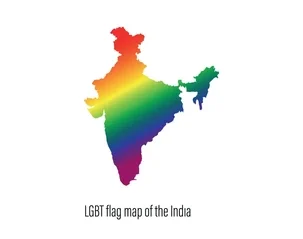In a nation where visibility can still come at a cost, a quiet revolution is unfolding. Across India, grassroots collectives and queer-led organizations are building a living map of “safe spaces”—physical and emotional sanctuaries for LGBTQ+ individuals who continue to face marginalization, violence, and isolation.
These spaces—often discreet, always intentional—span bustling metros and quieter towns alike. From Mumbai’s Humsafar Trust to Bhopal’s emerging queer networks, they offer more than just support; they are lifelines. In these rooms, individuals find not only counselling, legal aid, and healthcare—but also validation, solidarity, and joy.
The Geography of Belonging
The effort to map these spaces is part of a broader movement to make India’s LGBTQ+ infrastructure visible and accessible. Since the 2018 Supreme Court judgment decriminalizing homosexuality, the demand for affirming environments has surged. Yet, legal change has not translated into full social acceptance, making these safe spaces essential for survival.
Unlike traditional NGOs, many of these initiatives are peer-led and hyperlocal. Good As You (GAY) in Bengaluru has functioned for decades as a support group run by the community, for the community. Naz Foundation in Delhi provides therapy, STI testing, and art-based healing. Sappho for Equality, based in Kolkata, works specifically with lesbian, bisexual, and trans masculine individuals—a rare focus in India’s queer ecosystem.
In Thane, Assam, Chennai, and Kerala, newer organizations are bridging regional and cultural gaps. The Vanaja Collective, for example, integrates art and activism to support queer, Dalit, and Adivasi individuals in Kerala. Each of these efforts reflects a different shade of queerness in India—a mosaic of lived experiences often ignored by mainstream narratives.
Creating Sanctuary, Not Just Shelter
These spaces defy narrow definitions. A safe space might be a converted clinic where therapists offer gender-affirming care without judgment. It could be a café that doubles as a queer poetry circle. Or a WhatsApp group that becomes a digital refuge during moments of crisis. What binds them all is the intent: to hold space for those whose identities are too often pushed to the margins.
Amid growing concerns over mental health, alienation, and violence, these collectives are doing the work the state often does not. They organize legal literacy workshops, help trans persons access official IDs, and offer immediate shelter in times of danger. Many operate on shoestring budgets, powered by volunteers and allies.
Resistance, Rooted in Care
In mapping these spaces, the community is doing more than creating directories. They are asserting their right to exist, loudly and publicly. “We are drawing our own map,” said a Kolkata-based organizer. “A map of resistance, not retreat.”
The visibility of this map matters. In a country as vast and diverse as India, simply knowing that there is a space—physical or virtual—where one will not be judged, harassed, or harmed can be life-changing.
As India continues to negotiate its future between progressive jurisprudence and persistent conservatism, these grassroots efforts stand as both protest and promise. They offer a glimpse into an India where safety is not conditional, where care is radical, and where queerness is not an exception, but part of the social fabric.


